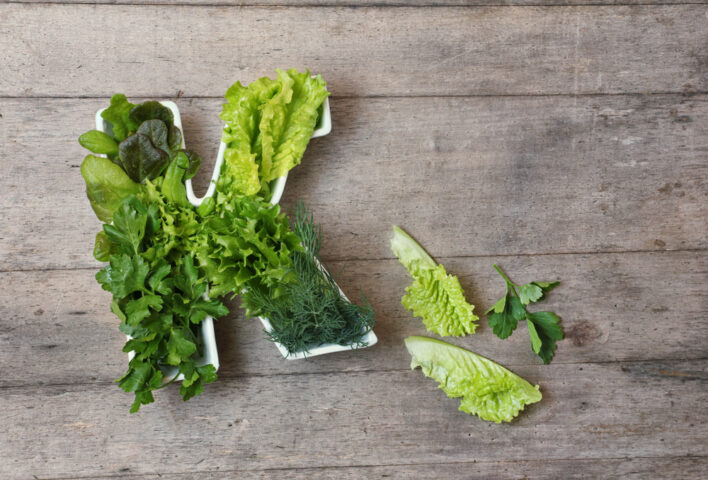Ask the Dietitian: Vitamin K
A healthy, balanced vegetarian diet provides us with a whole host of vitamins and minerals, but how much do you know about their roles in the body? Registered dietitian Rachael Hunter takes a closer look at vitamin K, its role in our bodies and where to find it in the diet.

What is Vitamin K?
Vitamin K is a fat-soluble vitamin, and actually refers to a group of similar chemical compounds rather than just one vitamin. If you want to wow your friends the alternative name for this family is menaquinones. The two most common types are often referred to as ‘K1’ and ‘K2’, and you might notice these advertised on certain nutritional supplements.
What does it do?
Vitamin K has many uses in the body, but one of its two main uses are its role in blood clotting, which you will be familiar with if you or anyone you know takes warfarin (a medication to treat blood clots). Vitamin K will help our blood to clot, for example if we cut ourselves. Secondly, it is important for our bone health alongside the more commonly known calcium and vitamin D.
Where to find it?
There are a number of sources of vitamin K in a balanced vegetarian diet, and there is also evidence to suggest that our own gut bacteria can produce it as well. Top food sources include green leafy vegetables, broccoli, green beans, and vegetable oils such as rapeseed, olive and soya oil.
Should I take a supplement?
Vitamin K deficiency in adults is rare and most people will not need to take a vitamin K supplement. Luckily, we should be able to get all we need from a balanced diet. As vitamin K deficiency is uncommon, levels are rarely checked via blood tests, unless someone is on warfarin.
As vitamin K it is also a fat-soluble vitamin, this means that our bodies can store it in our liver on days when we have a good amount of vitamin K to eat and then use it on days when we don’t eat much vitamin K. We have our own store cupboard for this vitamin which is very handy!
As with most vitamins, if you want to take a supplement containing vitamin K, caution should be taken around large doses. However, it is thought that taking around 1mg or less a day is unlikely to be harmful if you would like to take a supplement.
